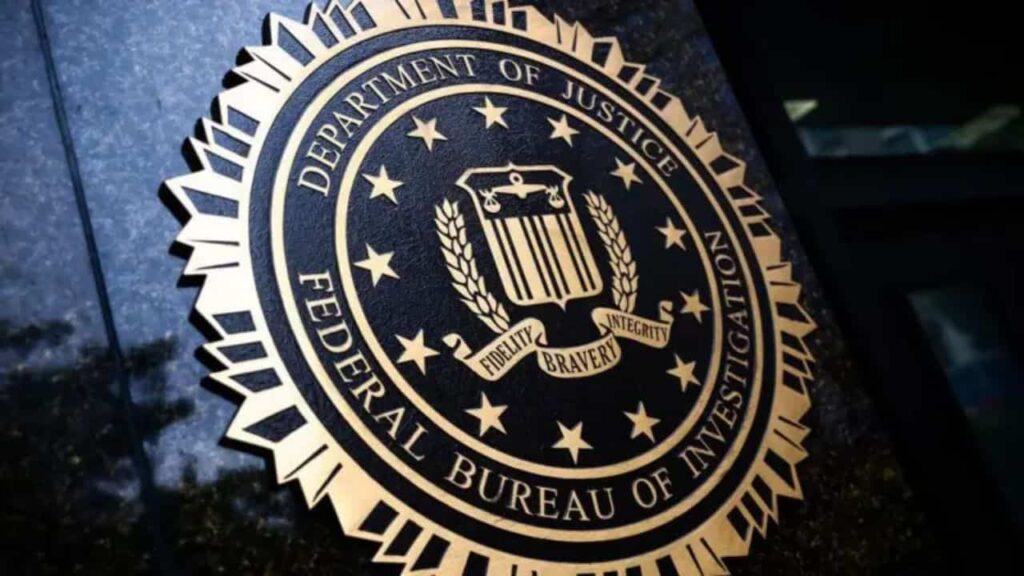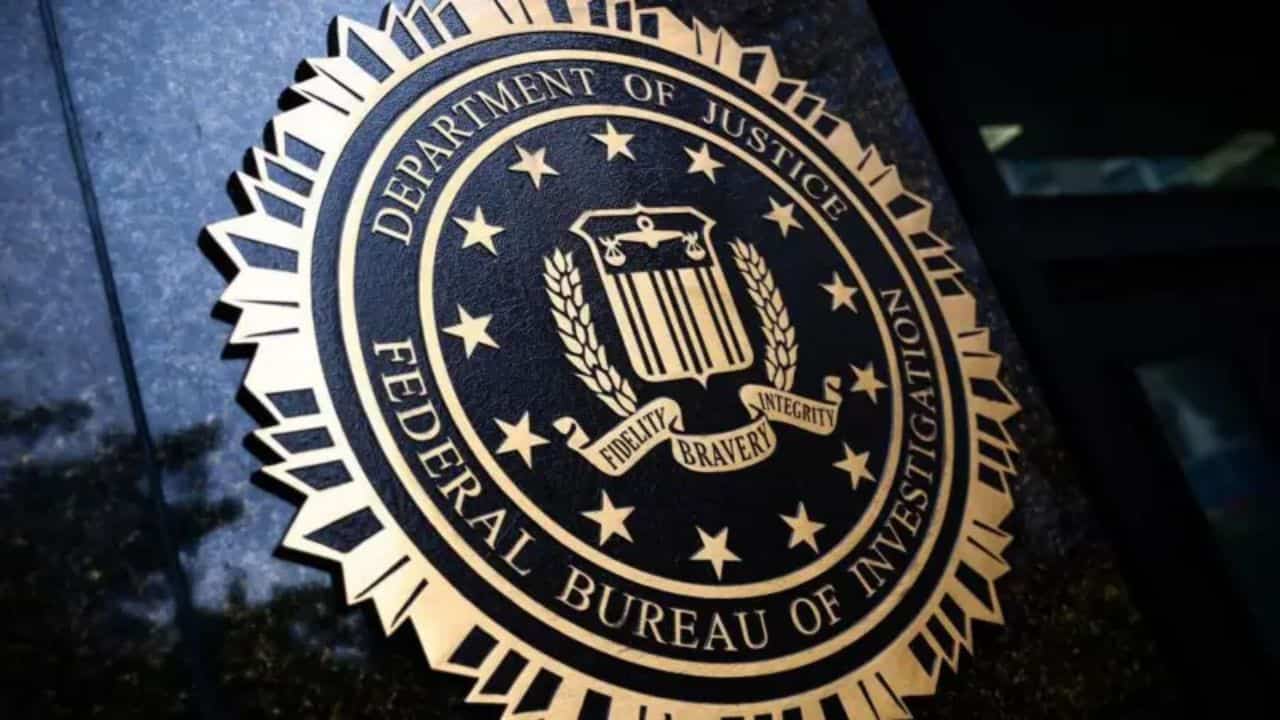FBI investigation, Iranian hackers, Trump campaign hack, Biden-Harris campaign, election cybersecurity, phishing attacks, US presidential election, Iranian cyber threats, Microsoft Threat Analysis, political hacking
Explore the unfolding investigation as the FBI probes claims that Iranian hackers targeted the Trump campaign during the US presidential election. Learn about the alleged phishing attacks, the FBI’s response, and the implications for election cybersecurity in this detailed analysis.

FBI Probes Claims of Iranian Hacking Targeting Trump Campaign: A Closer Look at the Allegations and Implications
In recent years, the intersection of cybersecurity and politics has become increasingly significant, particularly in the context of U.S. presidential elections. The 2020 election cycle was no exception, with allegations of foreign interference surfacing once again. One of the most notable claims to emerge was that Iranian hackers targeted the Trump campaign. The FBI has since opened an investigation into these allegations, highlighting the ongoing concerns about election security and foreign influence in American politics.
The Allegations: A Timeline of Events
The allegations of Iranian hacking targeting the Trump campaign came to light in the summer of 2020. According to a statement released by the Trump campaign, hackers working for the Iranian government illegally obtained documents from the campaign. The campaign described these actors as “foreign sources hostile to the United States,” a claim that has sparked significant concern among U.S. intelligence and security agencies.
The timing of the allegations is critical. On July 17, 2020, Microsoft’s Threat Analysis Center (MTAC) released a report indicating that Iranian hackers had targeted the campaign of an unnamed U.S. presidential candidate in June of that year. The report detailed how the hackers used a spear-phishing email to attempt to gain access to the campaign’s systems. Spear-phishing is a tactic in which a seemingly trustworthy email is sent to a target, enticing them to click on a malicious link or provide sensitive information. This method has been widely used in cyberattacks, making it a significant threat to political campaigns and other high-profile targets.
In response to Microsoft’s report, the Trump campaign issued a statement confirming that it had been targeted by hackers and that the documents were obtained illegally. The campaign, however, downplayed the impact of the hack, stating that the hackers were “only able to get publicly available information.” Despite this reassurance, the implications of such a breach are profound, particularly in the context of an ongoing presidential election.
The FBI Investigation: What We Know So Far
The FBI’s involvement in investigating the alleged Iranian hacking began shortly after the Trump campaign’s statement. The agency confirmed that it had opened an investigation into the matter, although it did not specifically name the Trump campaign or Iran in its initial announcement. This cautious approach is typical of the FBI, which often refrains from disclosing details of ongoing investigations to avoid compromising its work.
Reports from CBS News, which cited individuals familiar with the investigation, indicated that the FBI was also looking into whether Iranian hackers had targeted the Biden-Harris campaign. This broader scope suggests that the alleged hacking attempts were part of a more extensive campaign to influence the 2020 election, possibly by sowing discord or obtaining sensitive information that could be used to manipulate the outcome.
The Washington Post further reported that three staff members of the Biden-Harris campaign were targeted by phishing emails in the days leading up to President Joe Biden’s announcement that he would be quitting the race. This detail adds a layer of complexity to the investigation, as it suggests that multiple campaigns may have been targeted in a coordinated effort by foreign actors.
The Role of Iran: Denials and International Tensions
Iranian officials have consistently denied any involvement in the alleged hacking attempts. Despite the accusations from the Trump campaign and the ongoing FBI investigation, the U.S. government has not formally accused Iran of carrying out the hack. This lack of official attribution underscores the challenges of proving state-sponsored cyberattacks, which are often conducted through proxies or in a manner that obscures the attackers’ true identity.
The relationship between the United States and Iran has been fraught with tension for decades, and the alleged hacking attempts have only added to this strained dynamic. In addition to the hacking claims, U.S. security sources had previously warned of an Iranian plot to assassinate Trump, although this plot was reportedly unconnected to the hacking attempts. These ongoing threats and allegations highlight the broader context of geopolitical rivalry and the use of cyber capabilities as a tool of statecraft.
The Implications for U.S. Elections and Cybersecurity
The allegations of Iranian hacking targeting the Trump and Biden-Harris campaigns raise significant concerns about the security of U.S. elections. Cybersecurity has become a critical issue in the digital age, where political campaigns, government agencies, and critical infrastructure are increasingly vulnerable to cyberattacks. The 2016 election, in which Russian hackers were found to have interfered with the campaign of former Secretary of State Hillary Clinton, served as a wake-up call for the need to bolster election security.
Democratic Congressman Adam Schiff, among other lawmakers, has called for the FBI to reveal what it knows about the hacking attempts. Schiff’s concerns stem from the perceived slow response of the U.S. intelligence community in identifying and addressing the hacking and dumping scheme carried out by Russia in 2016. He and other lawmakers have emphasized the need for a swift and transparent investigation to prevent similar incidents from undermining the integrity of future elections.
The FBI’s investigation into the alleged Iranian hacking is a critical component of this broader effort to secure U.S. elections from foreign interference. The agency’s findings could have far-reaching implications, not only for the 2020 election but for the future of election security in the United States. If the allegations are proven true, it could lead to increased scrutiny of Iran’s cyber activities and potentially more stringent measures to protect U.S. political campaigns from foreign threats.
Political Reactions and Public Discourse
The allegations of Iranian hacking have also sparked significant political reactions, particularly among Democratic lawmakers. Congressman Eric Swalwell, for example, requested a briefing from the Department of Homeland Security on the “alleged hack of Trump’s presidential campaign.” Swalwell’s comments underscore the bipartisan concern over foreign interference in U.S. elections, even when the target is a political rival.
Swalwell’s remarks also highlight the complex and often contradictory nature of political discourse surrounding election security. While he criticized Trump as “the most despicable person ever to seek office,” he also emphasized that America should never tolerate foreign interference in its elections. This sentiment reflects a broader consensus that, regardless of political affiliation, safeguarding the integrity of U.S. elections is of paramount importance.
The allegations of Iranian hacking also bring to mind Trump’s own controversial statements during the 2016 election, when he publicly asked Russia to hack Clinton’s emails. This request, which was widely criticized, has been cited by some as an example of the dangers of inviting foreign interference in U.S. elections. The irony of Trump now being the alleged target of foreign hackers is not lost on his critics, who have pointed out the potential consequences of normalizing such behavior.
The Broader Context of Cybersecurity and State-Sponsored Hacking
The allegations of Iranian hacking targeting the Trump campaign are part of a broader trend of state-sponsored cyberattacks aimed at influencing political processes around the world. In recent years, several countries, including Russia, China, and North Korea, have been accused of using cyber capabilities to interfere in foreign elections, steal sensitive information, and conduct espionage.
These cyberattacks are often difficult to attribute with certainty, as state actors frequently use proxies or sophisticated techniques to cover their tracks. This lack of clarity can complicate the response from the targeted country, as officials may be hesitant to accuse a foreign government without definitive proof.
The use of cyber capabilities as a tool of statecraft is likely to continue as countries seek to advance their interests in an increasingly interconnected world. For the United States, this means that election security will remain a top priority for the foreseeable future. The lessons learned from the 2016 and 2020 elections will be crucial in shaping the policies and strategies used to protect future elections from foreign interference.
Conclusion
The FBI’s investigation into the alleged Iranian hacking of the Trump campaign is a stark reminder of the challenges posed by state-sponsored cyberattacks. As the investigation unfolds, it will be essential for U.S. officials to remain vigilant in protecting the integrity of the electoral process. The allegations, if proven true, could have significant implications for U.S.-Iran relations and the broader landscape of international cybersecurity.
As political campaigns continue to rely on digital platforms and communication tools, the threat of cyberattacks will only grow. Ensuring that these campaigns are secure from foreign interference is not just a matter of national security but also a fundamental requirement for maintaining public trust in the democratic process. The ongoing investigation into the alleged Iranian hacking will be a critical test of the United States’ ability to respond to and mitigate such threats in the future.
Read More
